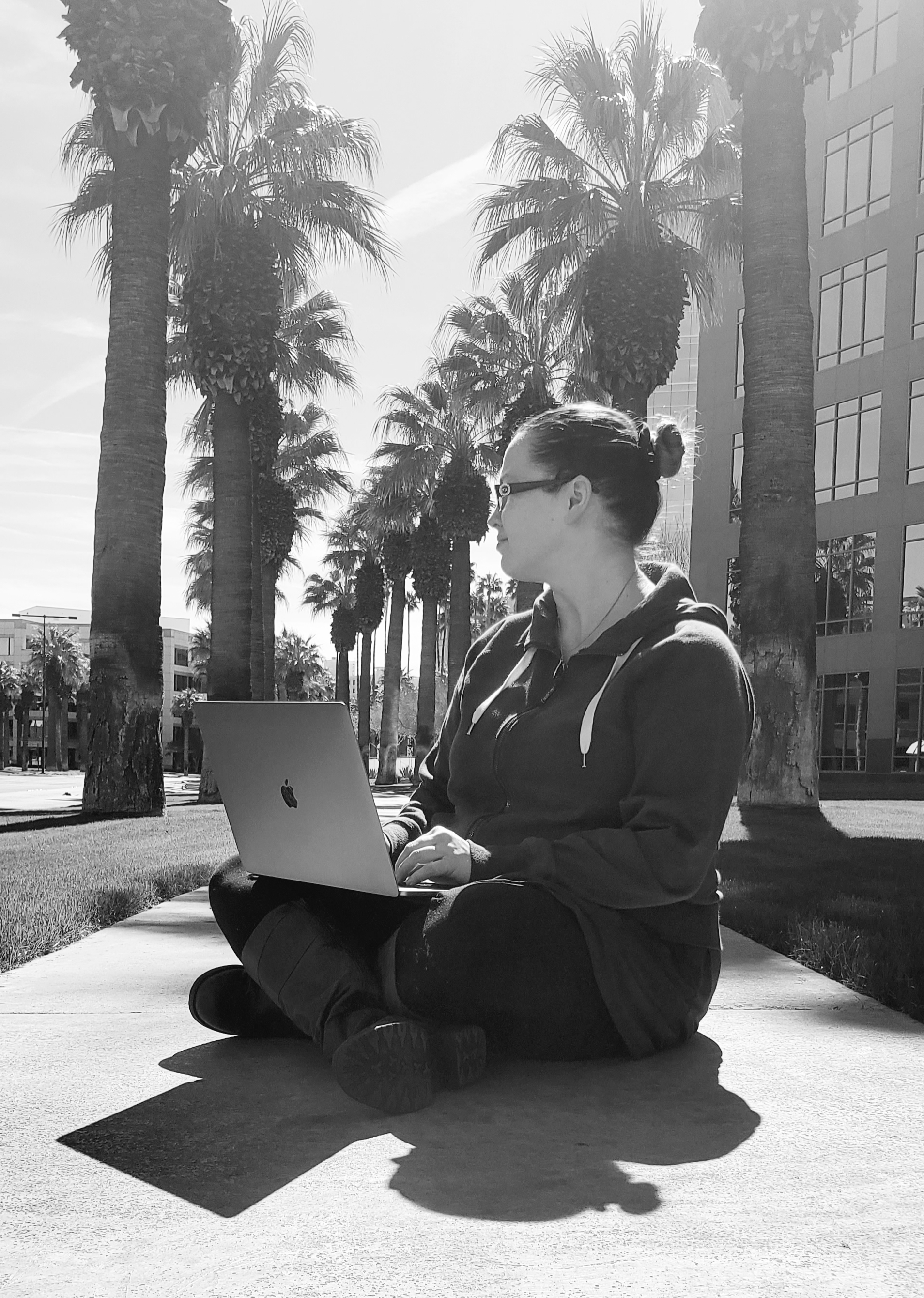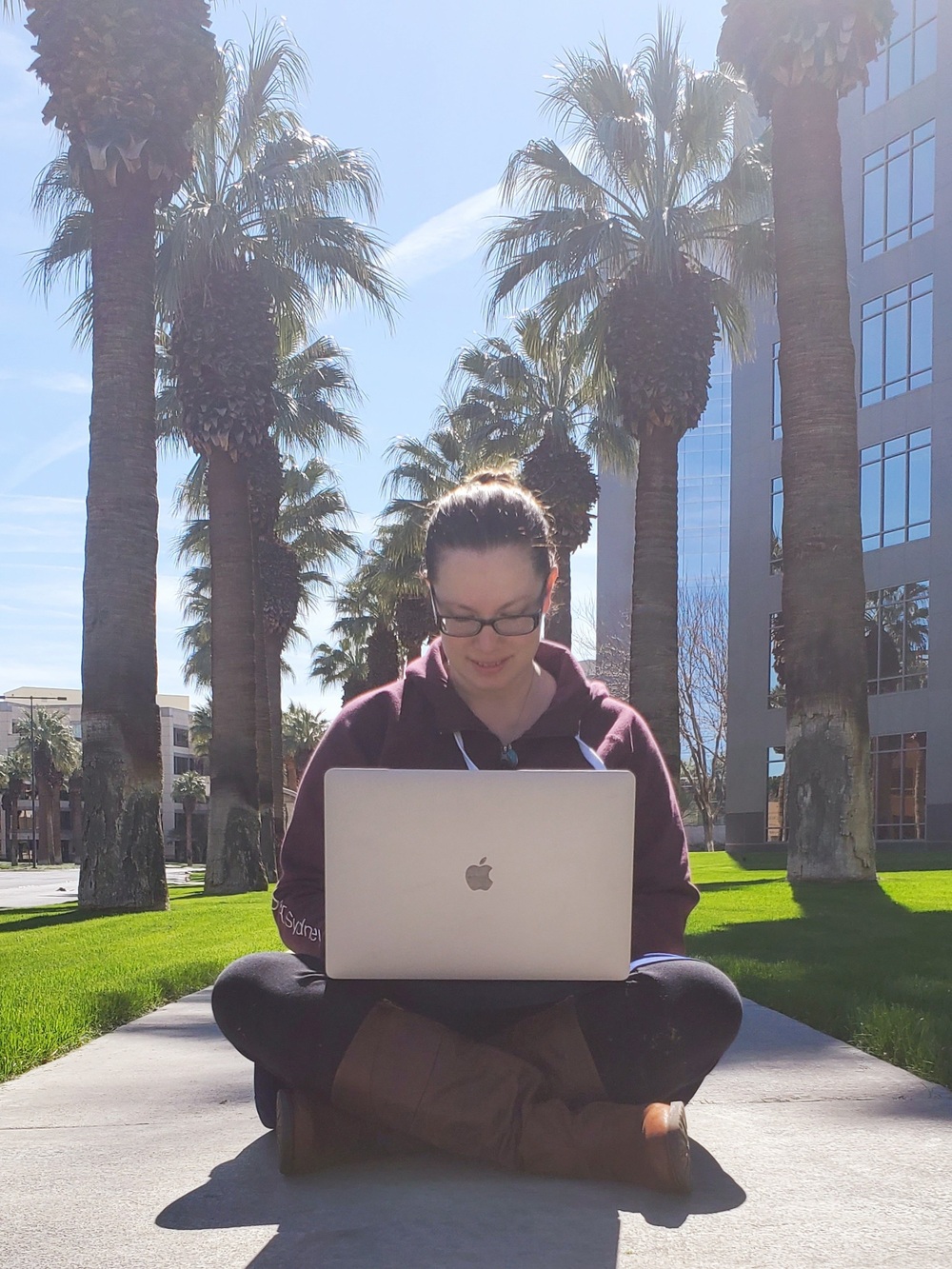What I Learned After Working Remotely for a Year

What happens when you suddenly need to work from home due to a myriad of reasons? Whether it’s the daily expectation or an occasional occurrence, working remotely has it’s benefits and challenges. After coming to a fully remote team at Okta, I discovered a few things about the reality of working outside of an office building that I’d like to share.

Communication is EVERYTHING When Working Remote
I discovered that my communication skills actually improved because they absolutely had to. When you aren’t hanging around in the same building as your team, walking over to someone to have a quick chat isn’t an option. That shifts the organizational style of where, when and how information is exchanged. Because the use of text-based applications will be the default way to reach out, you have the benefit of those conversations written down to reference later. Very helpful for any memory issues you might have about what was said. Additionally, I discovered that it was necessary to centralize commonly referenced information, putting things on a team controlled wiki or in Google Docs.
Operating independently was really important since we couldn’t always count on a team member’s availability to answer a question. Team email was utilized to be sure, but not as often as you might think. It became second nature to ask a quick question in the team messaging channel because everyone had the opportunity to see the answer. That team learning moment would have been lost if I just walked over to a teammate and asked it myself. When it came to having to go offline for any duration, it was easier to let the team know in Slack than send out an official email and felt more like you personally cared. Before I knew it, I felt personally connected to my team despite us living all over the place. It required some effort upfront to get to know people, but the results have been completely worth it!
Working Remote is Not Easy For Everyone
Isolation can creep up on people if they don’t have the physical presence of their peers. Part of how I handled the sudden shift from working in a room with a team to completely alone was to utilize white noise. I’d put on a podcast, listen to music or play a movie I’ve seen before on a television somewhere in the room. Eventually, I graduated to using just Spotify playlists. Trust me, I understand that this transition can be difficult especially if you are a people person. While I don’t always feel the need to be around my team, there were most definitely times I wish I had been. In those moments, I would also reach out to my developer friend network outside of my company and that helped a ton.
Sometimes you miss the conversations that happen purely because you happened to be passing by someone in a hallway. Part of how I handled that was getting involved in local developer user groups, attending conferences or participating in hackathons to get my community fix. I also found local developer friends that I would regularly schedule lunch with to get both of us away from work for a bit. The biggest takeaway I had was being intentional in contacting my team on a regular basis. If it had been a minute since I had chatted with them one on one, I would just start a direct message asking how they’ve been. It takes time and effort to begin a conversation for interpersonal reasons, and I always appreciated when a coworker would check up on me, or share their latest tech purchase.
Working Remotely Saved Me From Burnout
Before I moved to my current position, I was experiencing stress and anxiety at my work - and a lot of extra hours to contend with. I was inches away from complete developer burnout. When you have an elevated level of emotional taxation, it takes a toll on your mental health and motivation for coding. What I especially appreciated about working from home was the self-care I was able to do in the middle of a workday. If I began feeling overwhelmed, I could literally just get up from my desk and go lay down for a few minutes or cry into a pillow. It wasn’t always this way, but I was giving myself permission to let everything out and then come back to the task at hand after gathering myself. I would never have felt ok doing that in a shared workspace - I would have felt embarrassed, emotion convincing me I would be judged for not having it all together, all the time.
I cannot begin to express how grateful I have been to grow as a person through that challenge in the privacy of my own home. It was a gift to allow myself the grace to be overwhelmed without doing it in front of a team of other developers. While the burnout monster battle was won, for now, it encourages me to know that I have a great team around me who would be supportive no matter what happens in the future. That care for your fellow humans is important, no matter if you work remotely or not.
Remote Work Teaches You Discipline
Going from a physical work environment where you are visually monitored to working remotely can feel like the transition from high school to college. Suddenly there is no one looking over your shoulder, making sure you get your work done. No drive-bys, no drop-ins. Sounds heavenly, doesn’t it? The reality is a bit harsher. If you are used to being micromanaged, you might not adjust well to being responsible on your own for task completion. I find that working on my own nets a lot more focus time, and really appreciated the transition - but I had to be very intentional with my structured work day or I would risk getting distracted. Part of what helped was to utilize the Pomodoro Technique with a browser add on that would block non-work-related websites for a set amount of time before allowing access for a break. The amount of productivity apps available for Chrome specifically is too numerous to mention, but a quick Google search will take you there.
Additionally, I found that getting up in the morning and getting dressed as if I was going to the office really set my mind into work mode for the day. I set strict guidelines for when I was to end the workday as well, including having a dedicated place in my home that was just for work so I could get up and leave when I was finished at a set time. If I travel during my set work time frame, I do work on planes that allow wifi or tackle offline enabled tasks to keep myself consistent.
Pay Attention to Securing Your Work
Since I work at Okta, an excellent identity management company, we use our own solution to lock down access to sensitive information with Single Sign-On and OAuth + OIDC workflows. However, not every company is using something like Okta. Once you are outside of a physical building that restricts getting onto your secure network, gaining access to files you may need can become an issue. If working remotely becomes a sudden need for a non-remote company, be sure to communicate with your IT or security teams to get VPN access set up if necessary. If you want to work while traveling, getting a laptop privacy screen can be helpful for concealing your work from the eyes of strangers sitting next to you. I tend to use a VPN every time, as you are often at risk from the dangers of public wifi networks. You never know if someone nearby is using a wifi pineapple. Consult with your team to get ideas for their best practices for working securely.
Isolation is a Choice when Working Remote

Whether you are an introvert or an extrovert, working remotely can often feel quite lonely if you allow it. Something I discovered about myself is that while I don’t necessarily want direct interaction, I do enjoy being around people. Instead of moping about feeling isolated in my home, I have taken up going to public places to work a day or two a week, such as a library or an internet cafe. It also assists with the idea of getting dressed to be around other humans. Other times, I am quite happy to stay home all day (especially when I am not feeling up to dealing with humans) and get work done in complete peace.
Your Physical Health Can Take Priority
Often I have been asked about sick time. Now, there have absolutely been times when I am ill enough that I had to rest all day, or close my eyes from a migraine. However, I can often get at least some research or coding work done from home if I have mild symptoms that would have prevented me from going into the office otherwise. More companies need to allow productivity to flourish this way. Working from home can be a stop-gap between the in-office days and sick time (which may run out over the course of the year) and prevent a contagious employee from spreading illness to coworkers. Nobody should be in public places when they are ill. That is how you get decreased productivity; by one employee wiping out half your staff from a virus that continues to keep on giving. As someone who works full time remote but travels often, I can tell you that I also have to exercise caution with my human interactions if I feel under the weather.
Flexibility in a Work Schedule is a Game Changer
Now, I understand that working remotely does not always equal setting your own working hours. While my awesome team is distributed throughout time zones and therefore does not have a set time frame to be online, there are companies that will require it for their business needs. When it comes to a schedule while you are working remote, I have found it much easier to move around what I want to do within the boundaries of my working hours (9-5 for example), since I can be wherever I need to be as long as I brought my laptop with me. This has been especially helpful while meeting up with a friend for lunch at a better time that works for them, going to a quick doctor’s appointment or being home to wait for a signed package from the mail person. Flexibility in how I structure my day is much easier when you are the only one who needs to be concerned about when you take your lunch, and you don’t have to deal with a commute if you don’t want to. I have become much less stressed when I work this way. Life doesn’t feel quite as overwhelming when you can move things around that work best for the day at hand.
It Doesn’t Have to be Difficult to Work with Others Virtually
One of my favorite examples of this is video conference calls. Connecting with the human side of working together is made much the same when we can not only share our screens but also see facial expressions with a webcam. I’ve used many different ones such as Zoom, Google Hangouts, Skype, GoToMeeting and Microsoft Teams. Most of them give you a sense of who the person is and how they are expressing themselves. This is especially important when a developer has a dry sense of humor and might be joking around - but it would be difficult to tell with text or voice alone. Now I ask for almost every meeting or pair programming session I have to be done with their webcam turned on. It’s not possible for every conference call, but most of the time it is. This has allowed me to work through disagreements or confusion faster, as the person’s intent is much more clear when you can see their face. Another bonus of this approach is the feeling like you are interacting in a much more natural way, almost as if you are in the same building or even the same room. I’ve even experimented with leaving my Zoom or Hangouts call active for hours to allow friends or coworkers to pop in and say hello like they would in person. Tricks like this can stave off loneliness and make you feel more connected to the human equation.
Mindset Influences Your Remote Work Experience
While I mentioned earlier in this post that working remotely is not for everyone, most of the suitability comes down to how you approach it. I’ve found that it can be a blessing or a curse depending on my attitude of approach. I chose to embrace the lesson of being more responsible and independent in my work, but I could just as easily have complained of feeling disconnected and unseen. The great discovery was that if I wanted communication, I needed to do something about it and not complain about it on the sidelines. Gently reminding others to start their webcam during a meeting became second nature, and helped my anxiety of misunderstandings decrease to almost zero. Using the multitude of instant messaging systems daily also assisted with feeling connected instead of ignored. Finally, I learned that I could set healthy boundaries with myself and others when it came to my schedule. Once my workday time frame has expired, I set my status on Slack to ‘do not disturb’ or ‘away’ and physically removed myself from the place I was working.
You can do this. In fact, I challenge every dev team to try it out! You never know when staying away from your office building for a while might be mandatory, so give it a go and discuss how best to start this experiment. You might find that you organize your information better, your communication skills improve, and working with no pants on can be very freeing - but maybe not do that when using your webcam during a conference call. Get outside the office and code!

Working remotely can make you grow as a professional developer. Have you tried it? What was your experience? Share in the comments below any tips you have for working from home.
Learn More About Developer Life from Okta
If you’d like to discover more tips, we’ve published a number of posts that might interest you:
- 6 Simple but Powerful Habits for Effective Developers
- Why Every Developer Needs to be A Generalist
- The Best Travel Tips for People in Tech
- Pro Tips for Developer Relations
- Pro Tips for Developer Relations, Part 2
For other great content from the Okta Dev Team, follow us on Twitter and Facebook!
Okta Developer Blog Comment Policy
We welcome relevant and respectful comments. Off-topic comments may be removed.